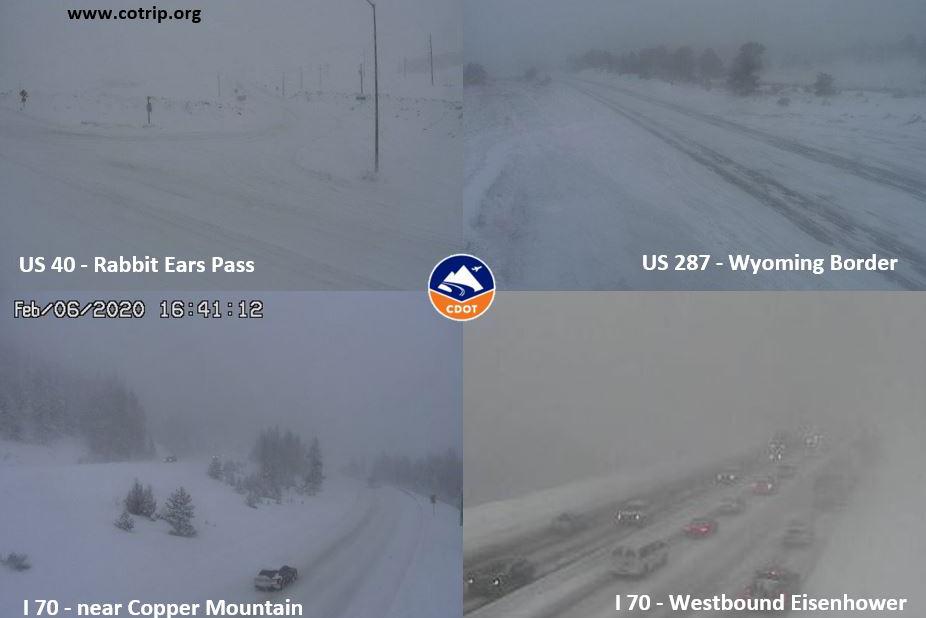
The mountains will get slammed by a winter snowstorm starting Thursday and heading into the weekend, eventually bringing mixed accumulations to the northern Front Range on Friday as well.
“It’s going to be pretty treacherous,” said Scott Entrekin, a meteorologist with the National Weather Service.
Winds gusting up to 60 mph combined with heavy snow will make terrible driving conditions in the mountains, Entrekin said. Between 1 and 3 feet of powder is predicted by Saturday morning, when the storm is expected to end.
The snow will head into Denver Thursday evening and overnight. Most of the snow in the metro will fall during the day Friday with 3 to 5 inches expected. Entrekin said some areas north and east of Denver could see up to 10 inches due to snow bands.
“It’s going to fluctuate over the next 24 hours,” he said. “It may mean heavy snow over Greeley for a period. Then it might drop down and you get that heavier snow band over Denver and then it kind of fluctuates back and forth.”
The National Weather Service issued a Winter Storm Warning through Interstate 70’s Mountain Corridor until 8 p.m. Friday.
People traveling on Interstates 25 and 76 on Friday morning will likely experience icy and snow-packed roads, Entrekin said. In the Front Range, people should see the storm die down after Friday night’s rush hour.
With all of that snow coming, the Colorado Department of Transportation is planning to do avalanche mitigation work from early Friday through the afternoon. That means I-70, U.S. 40 at Berthoud Pass and U.S. 6 at Loveland Pass will close periodically so crews can do their work.
"A typical mitigation mission from start to finish is about 30 minutes for us,” said Jamie Yount, CDOT’s winter operations program manager. “But the thing that can really slow us down and can be a little bit unpredictable is the cleanup after these snow slides come down and put debris on the highway."
When that happens, delays can stretch out for hours, Yount said. CDOT prefers to run smaller avalanche “missions” multiple times through, with possibly smaller results, in order to head off larger events — like an avalanche last March near Copper Mountain that closed I-70.
“An avalanche onto an open road is a failure,” Yount said.
Yount said to expect extended delays throughout the day, and warned that the expected snowfall will make travel "extremely difficult." He recommended motorists travel in the mountains later in the day Friday and make sure they have proper tires and a full tank of gas.









